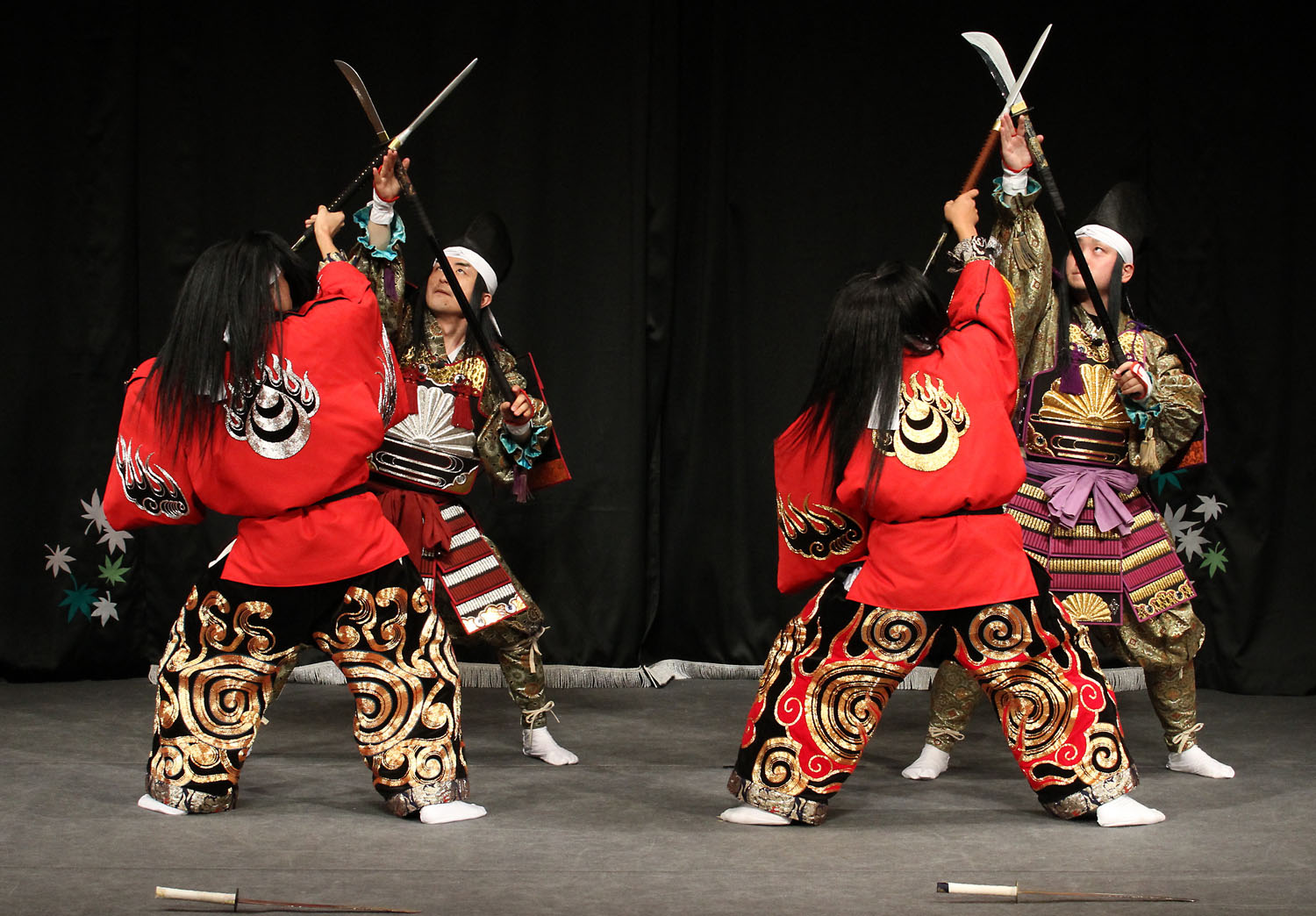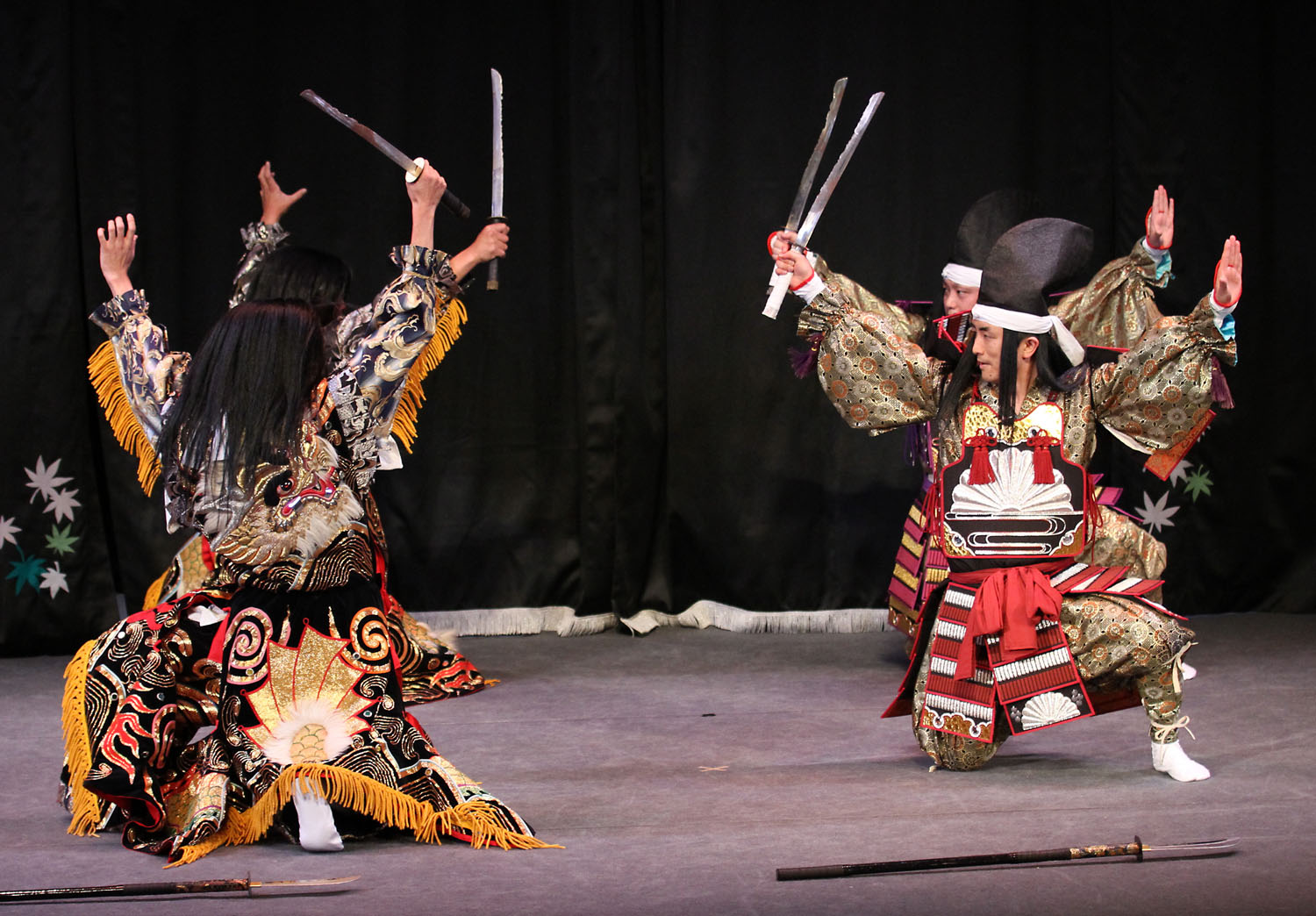Dai Nankō
大楠公


This play draws upon real life historical figure Kusunoki Masashige, also known as Dai Nankō. He was born in 1294 in Kawachi Province (current Chihaya-akasaka village in Osaka) and, in 1331, he helped Emperor Go-Daigo to defeat the Kamakura Shogunate.
However, when fighting begins once again across the land because of an insurrection led by Ashikaga Takauji, Masashige is ordered by the emperor to take on Ashikaga's massive army. Knowing there is no way that he and his forces can win against Ashikaga's men, Masashige goes willingly to his death at the Battle of Minato River out of a fierce loyalty to the emperor.
Before heading into battle, Masashige is at Sakurai post station, a horse station located along the Saigoku Kaidō Road, the official government highway connecting Kyoto with Shimonoseki. There, he tells his 11-year-old son Masatsura to return home to Kawachi and take up his legacy. Masatsura, knowing his father will not return from the battle to come, pleads with him to be allowed to accompany him into battle, but to no avail. His father tells him to return home and faithfully serve Emperor Go-Daigo.
Masashige and his brother, Masasue, head to the battle at Minato River, where Masasue utters his famous last words: Even if I had seven lives, I would give each of them to defend the emperor. In a final act of devotion and loyalty, the brothers fall upon each other's swords, rather than be killed by the enemy.